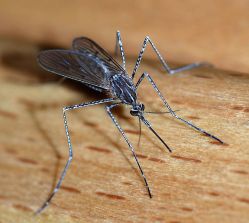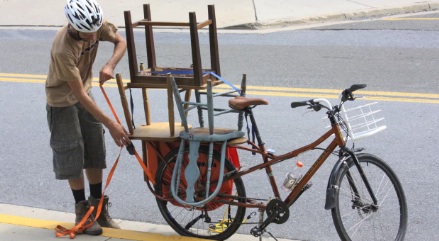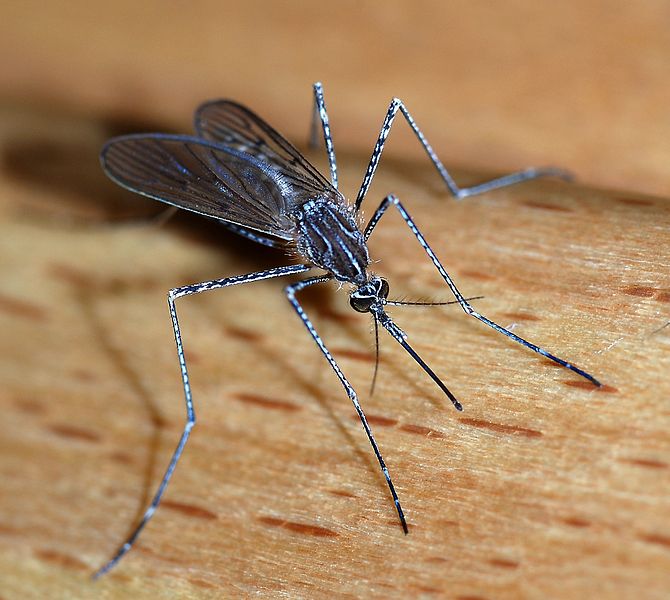Texas’ county of Dallas (home to the city of the same name) yesterday declared a state of emergency because of the West Nile virus. Nine people have died of the virus [PDF] so far this year.
[protected-iframe id=”74a5eb1adfbea000be0ba3df0afe6c9f-5104299-36375464″ info=”http://swfs.bimvid.com/bimvid_player-3_2_7.swf?x-bim-callletters=WFAA” width=”470″ height=”264″]
Having grown up in the Snow Belt, I recognize that my attitude toward winter is more hospitable than most. But regardless of your hostility to the season, there is an unquestionable benefit to cold weather: mosquitoes vanish. They don’t all die, unfortunately, but those that live are in hibernation, nestled into nooks in the slightly warmer earth.
Which is why climate change means that we’ll see more mosquite-borne diseases. With warmer winters (like the one the Northeast just saw), mosquitoes will remain more active, longer. And warmth also improves transmission:

A disgusting, repulsive insect. (Photo by Alvesgaspar.)
“The [West Nile] pathogen — the warmer the temperature, the faster it moves from the blood to being transmitted. It usually takes a while for the virus to get into the mosquito’s salivary glands,” said Marm Kilpatrick, an assistant professor in ecology and evolutionary biology at the University of California, Santa Cruz. “The biting rate also gets faster. So those things are all going to give you more transmission.”
On the other hand, hotter weather shortens the mosquito’s life span. “What you basically have going on is three factors going in one direction and one factor in the [other] direction,” said Kilpatrick, who published a paper on West Nile virus last month in the journal Science. “It’s a little bit tricky to make a solid prediction.”
It’s hard to pin the deaths in Dallas on climate change. For one thing, it’s hard to pin anything on a worldwide, multi-decade climate trend. But for another, Dallas winters are not exactly severe. What’s clear is that Dallas is getting a lot more moisture than last year. (Texas’ drought, while existent, has been less severe than 2011.) More moisture means more places for mosquitoes to breed. Compare rainfall totals between 2011 and 2012:

Data from WolframAlpha.
The main concern is that Dallas provides a preview of what municipalities across the country can expect. West Nile entered the United States in New York, and in four years’ time blanketed the lower 48. As average temperatures and atmospheric moisture increase, it’s likely that outbreaks like those seen in Dallas will be seen elsewhere.
When you’re cooped up inside some freezing day this January, eager for summer to return, remember: That cold is keeping mosquitoes in check. And nothing ruins a nice summer day like being bitten by mosquitoes.
Except dying from a disease one gave you.




